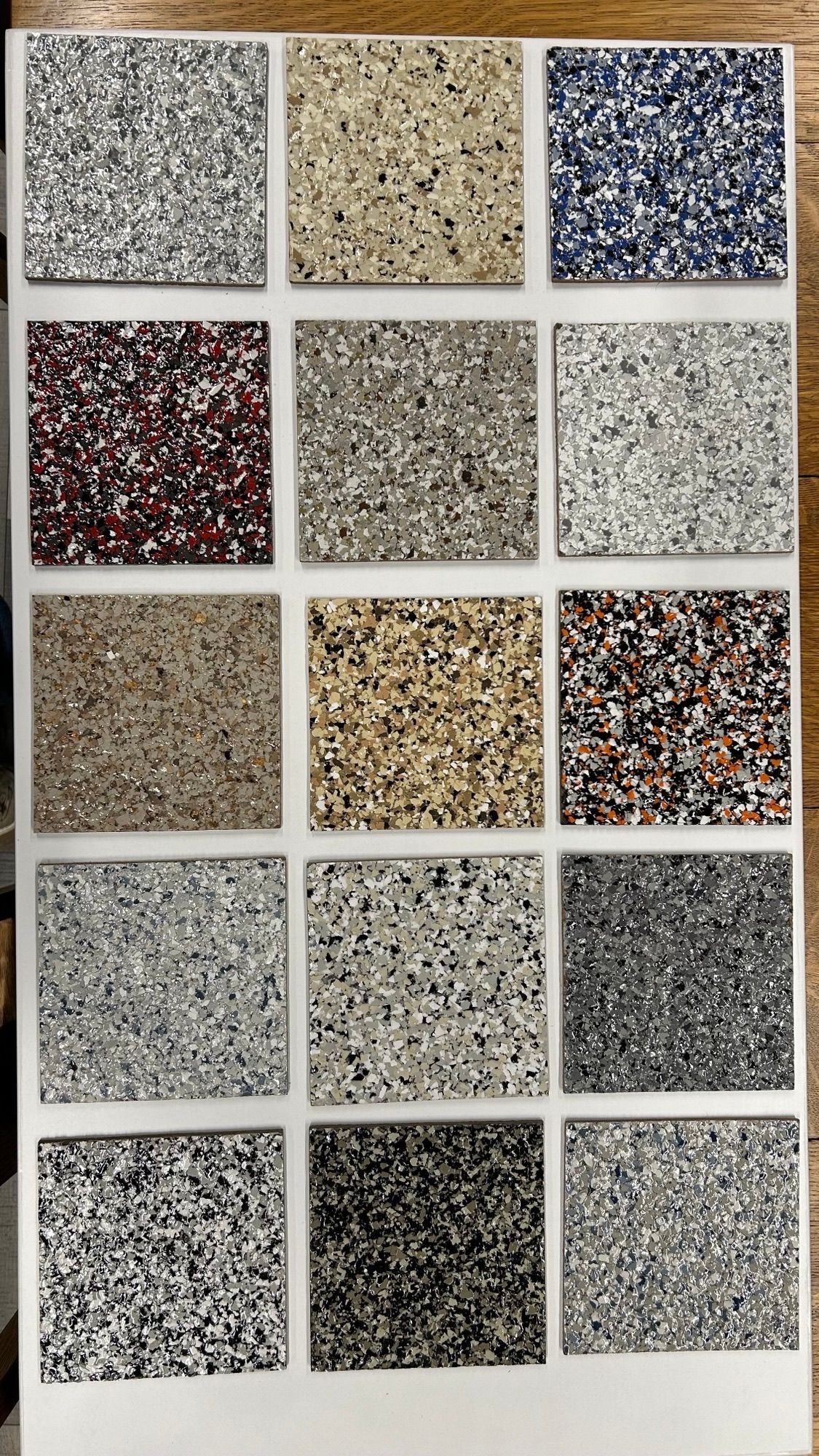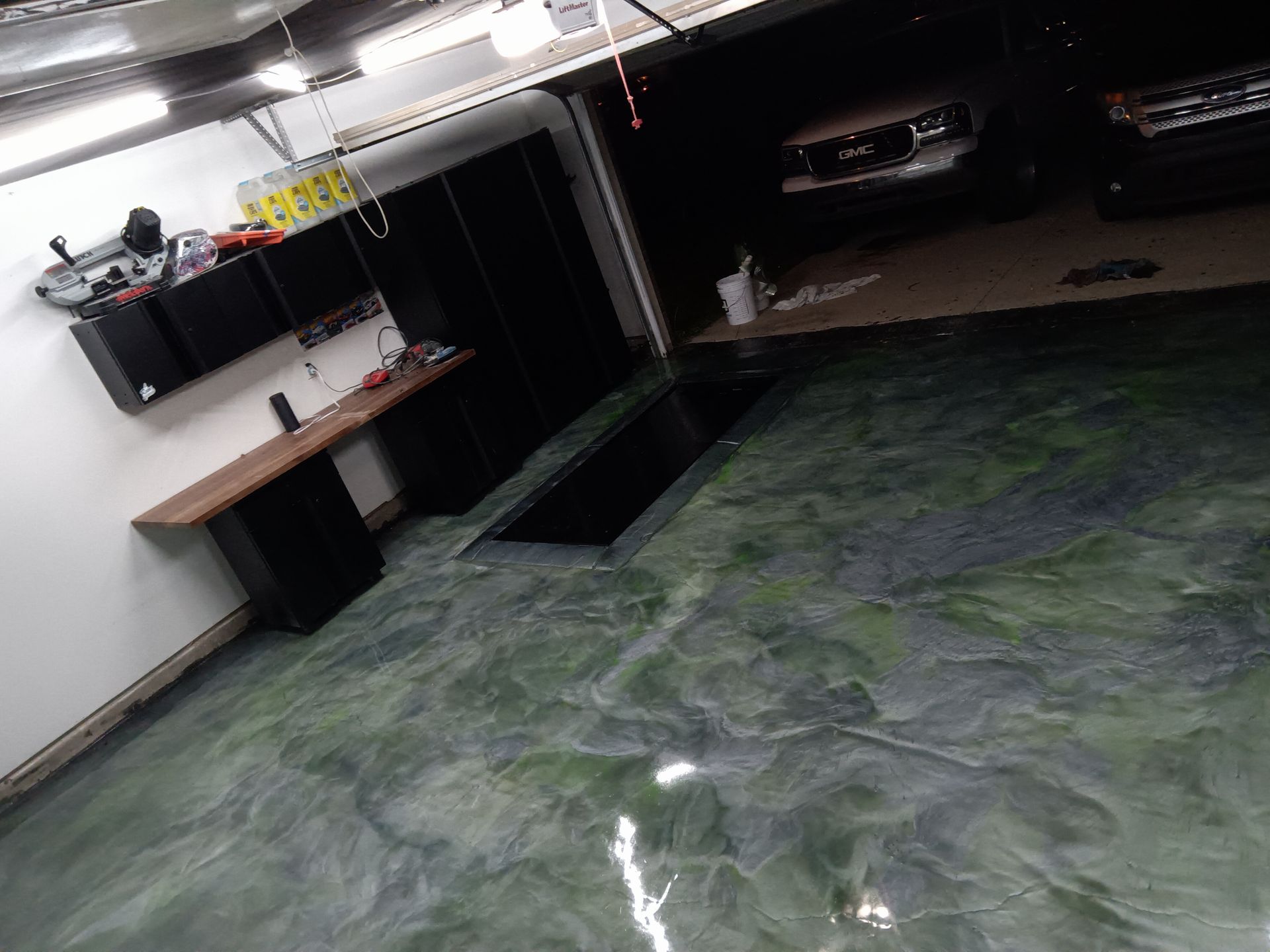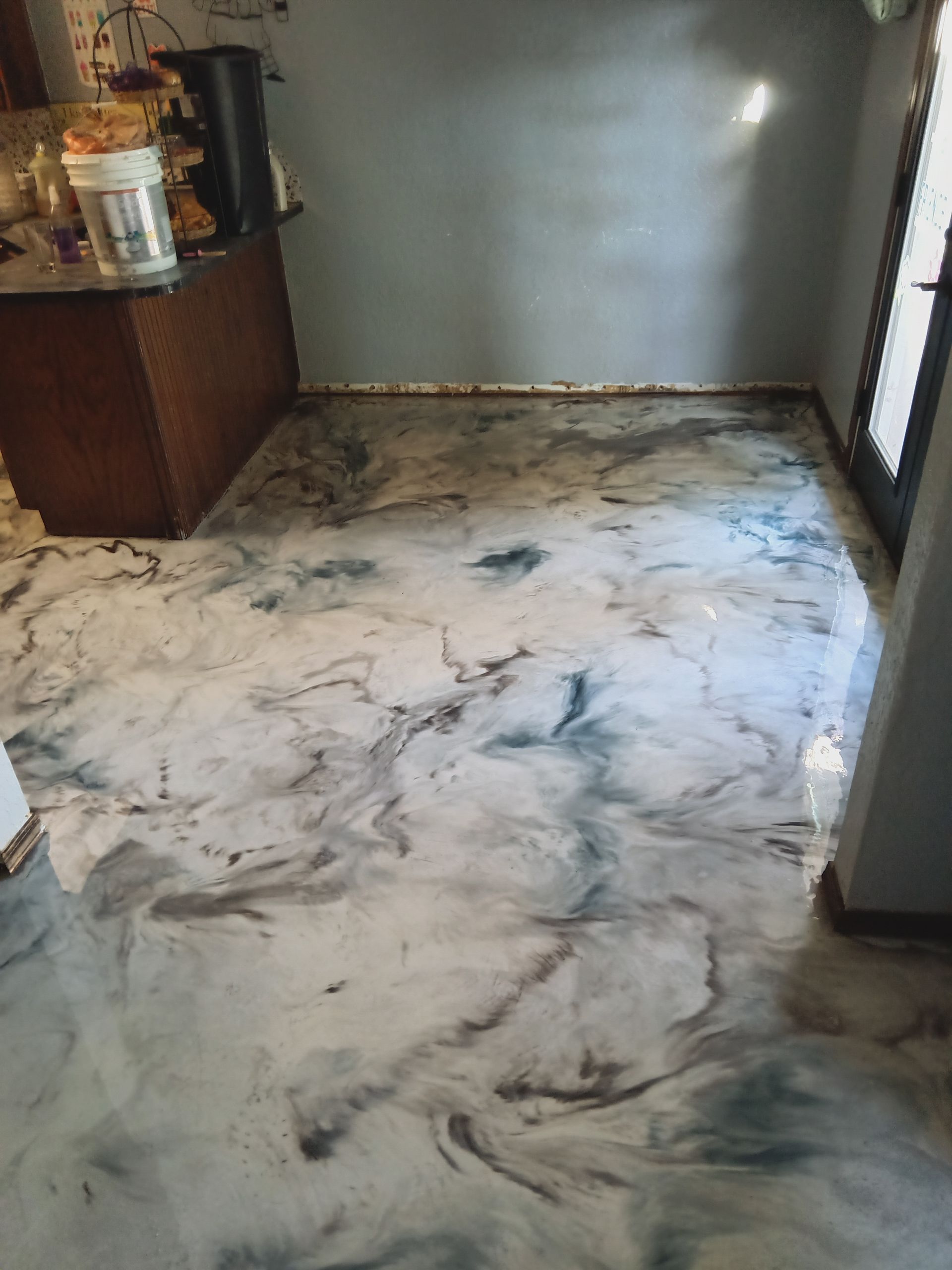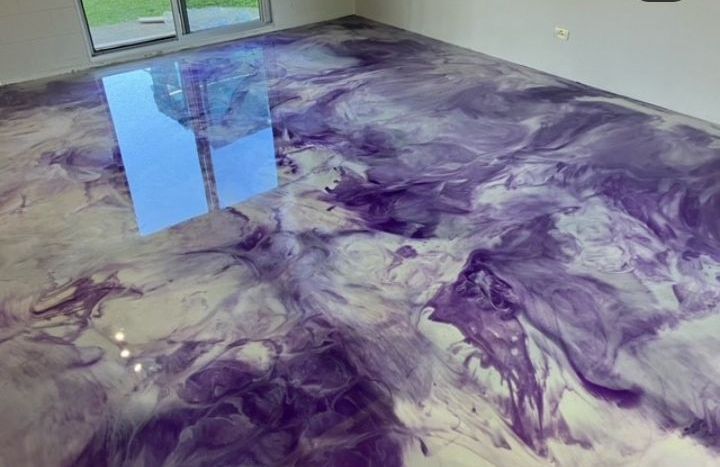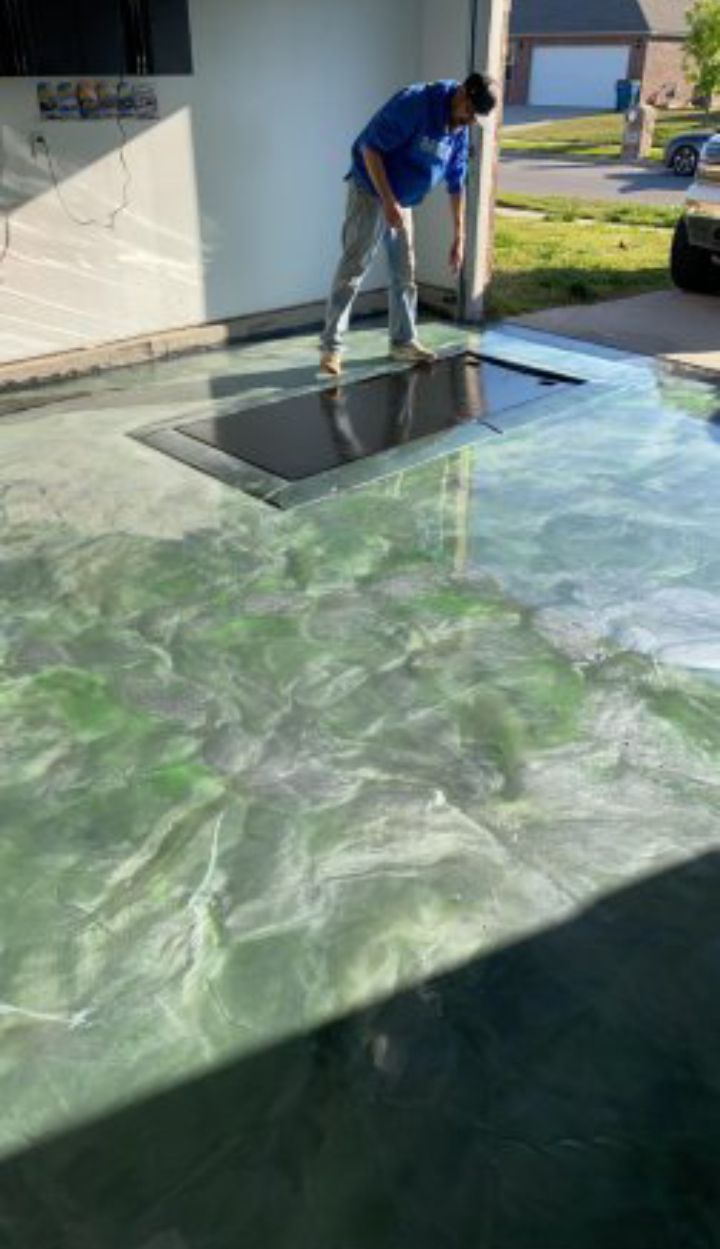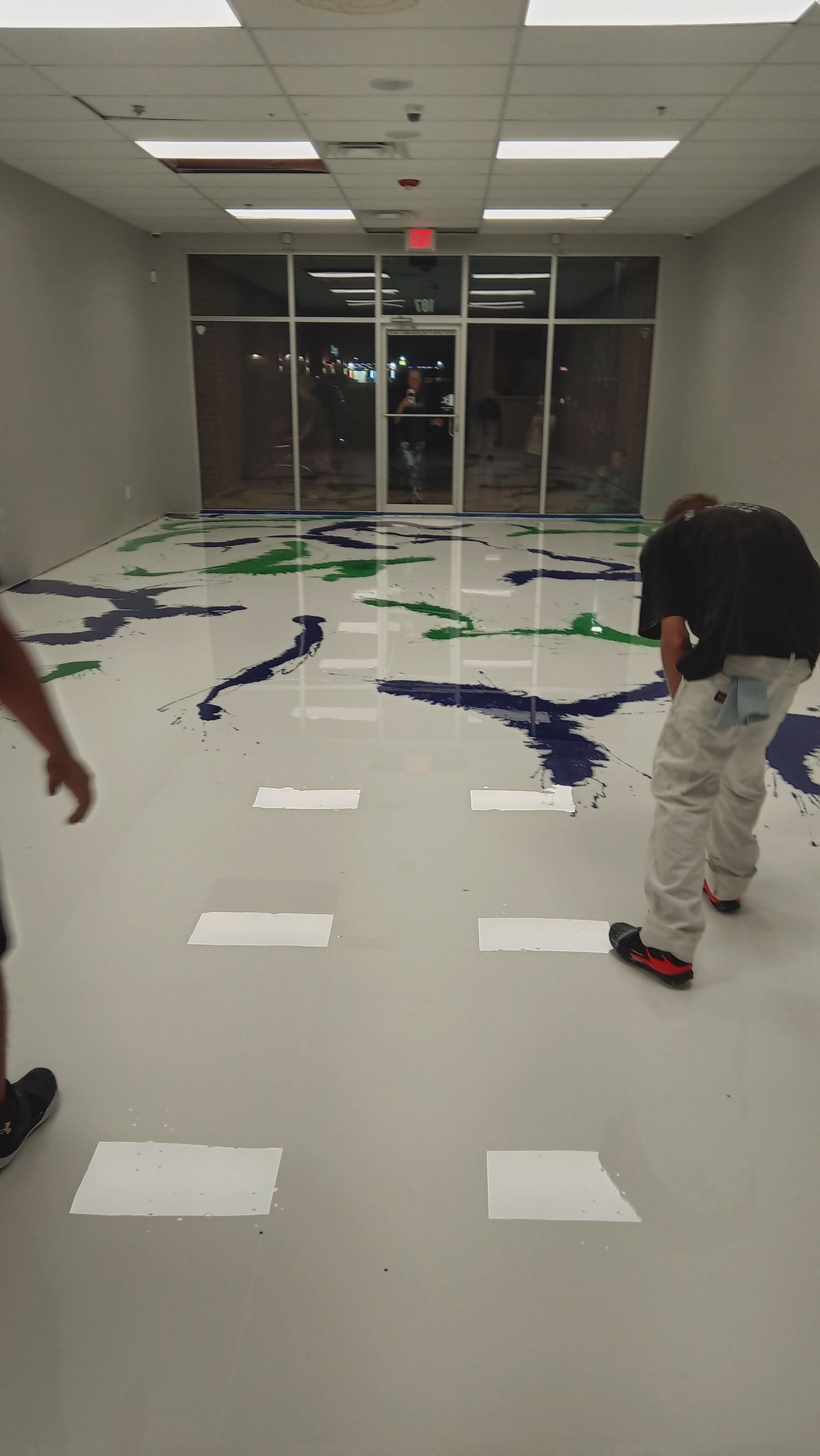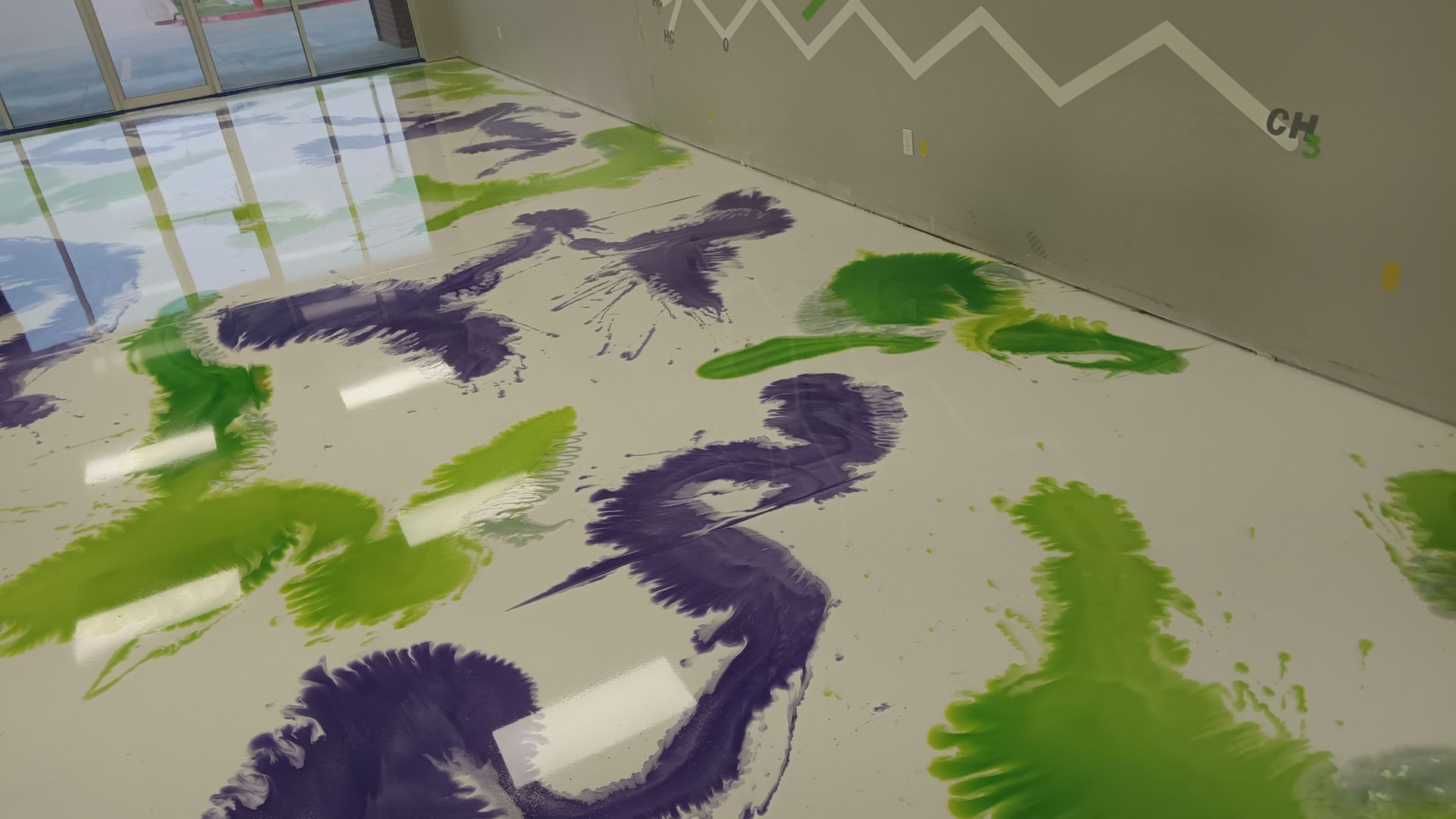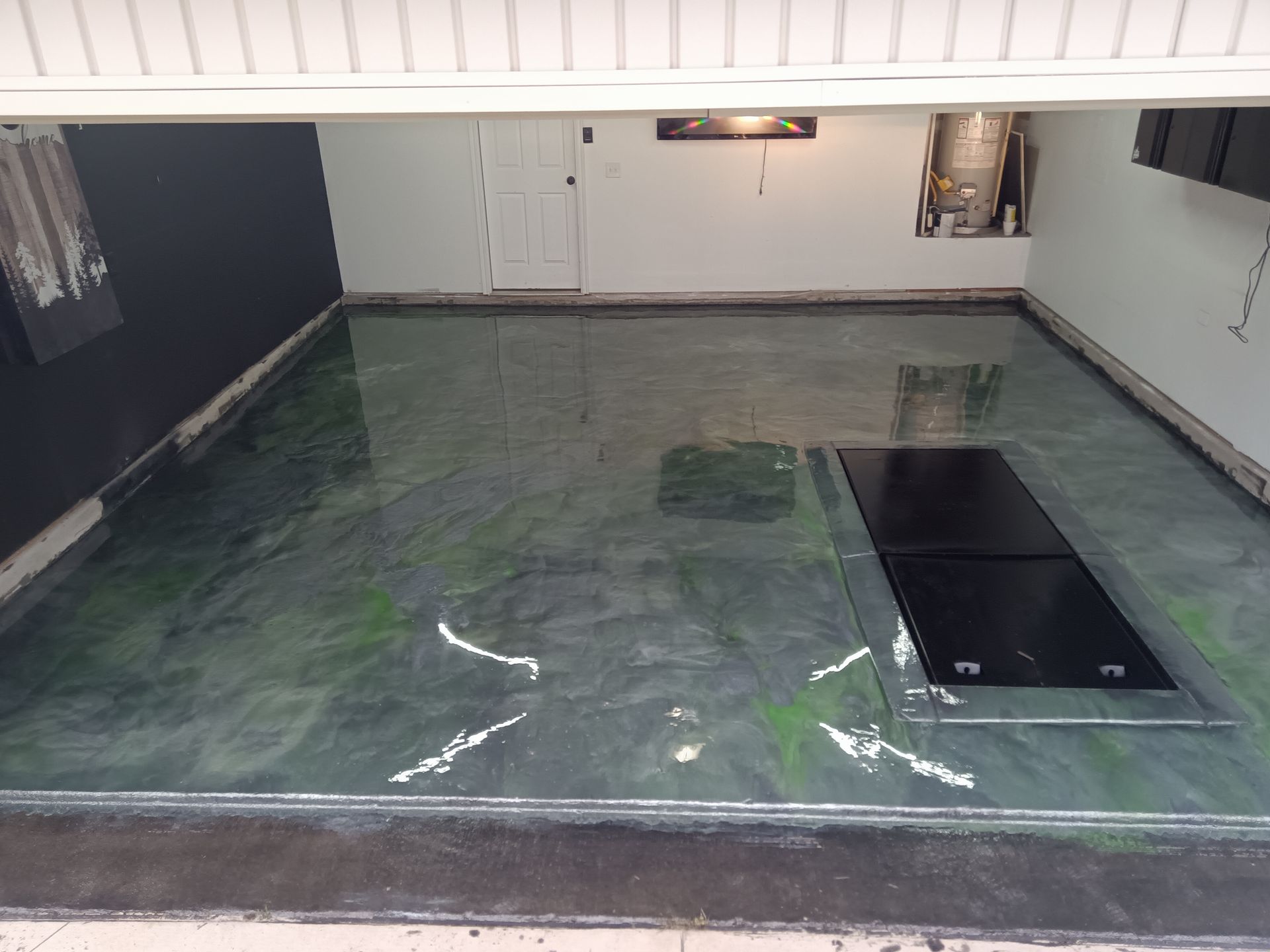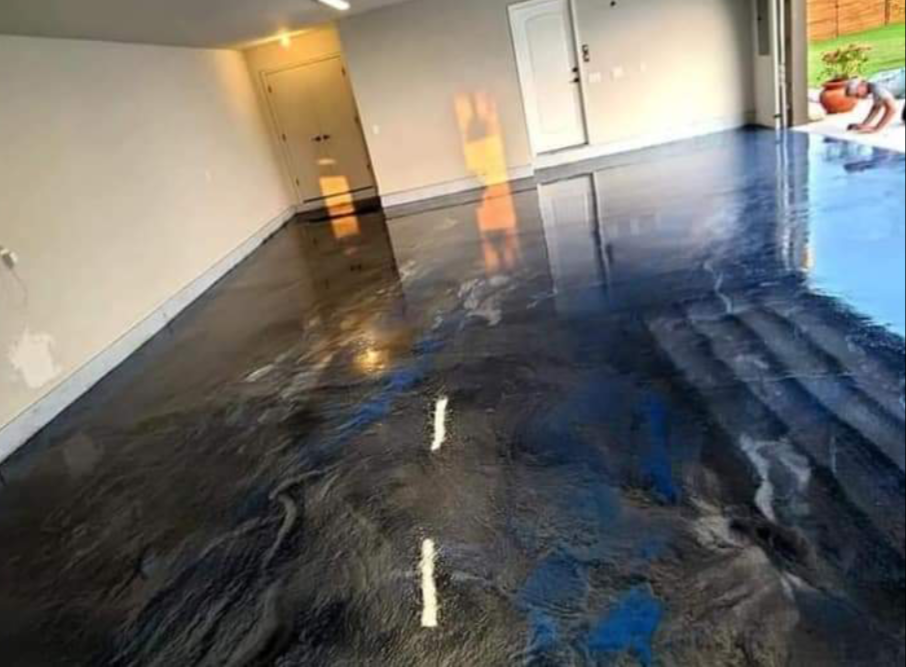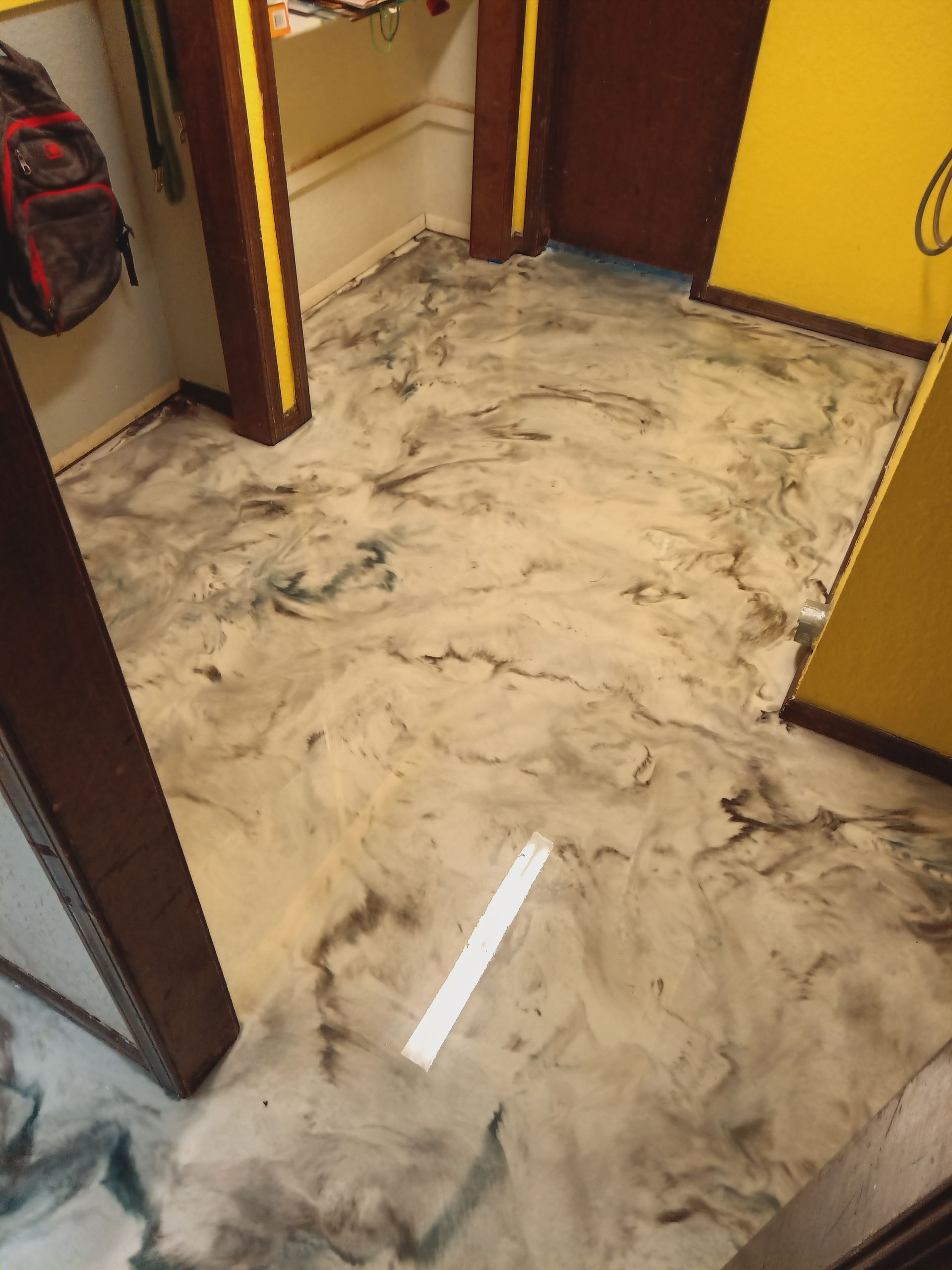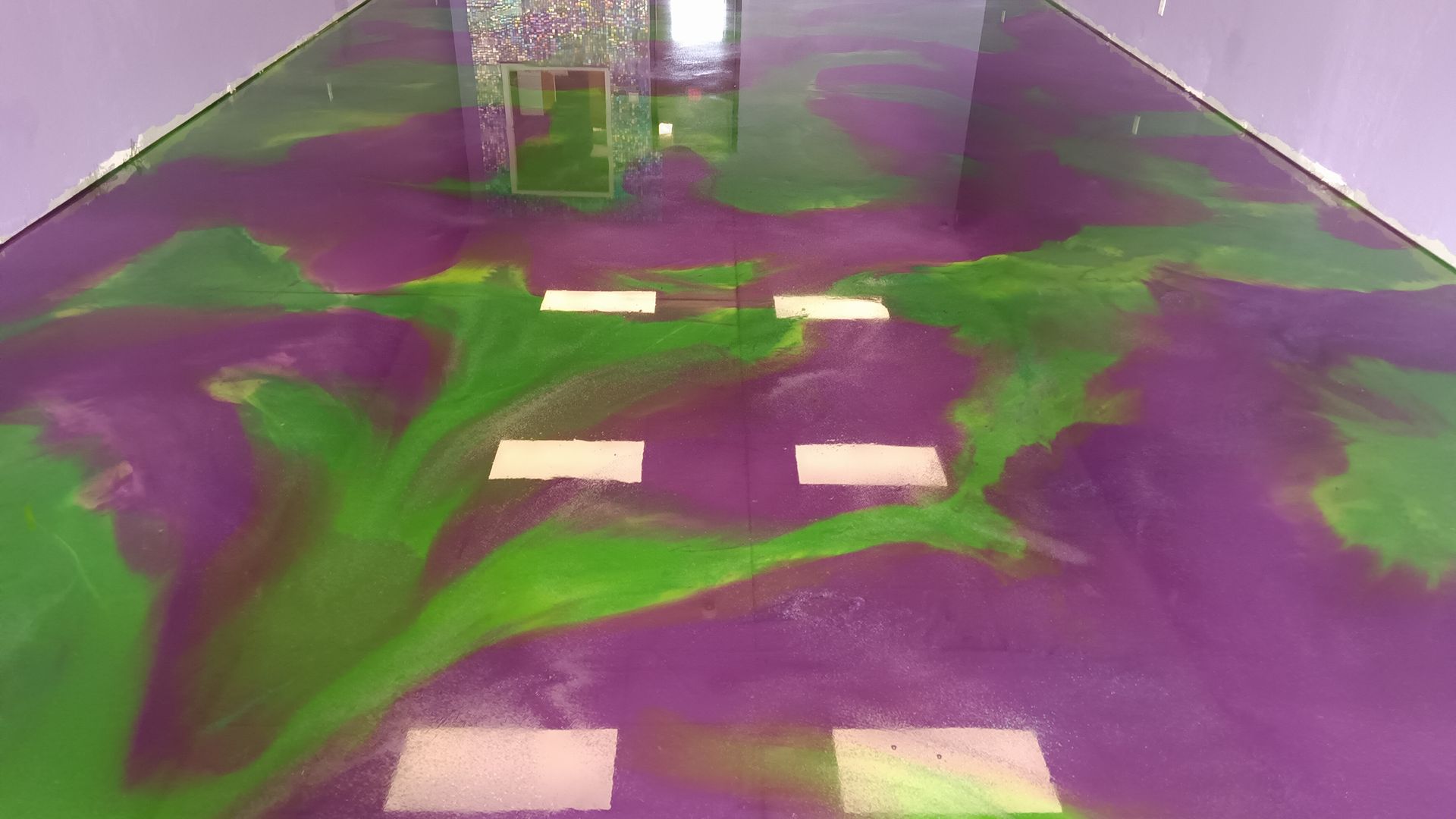Epoxy Coatings Services
Professional Epoxy Coatings
Polyaspartic Flake Flooring and Metallic Epoxy Coatings are the two most popular types of floor coatings. Both provide protection and decorative appeal for concrete garage floors and have additional similarities, as well as several major differences. Applications vary, but there are pros and cons to each product and areas where one may excel over the other.
The Floor Coatings are for residential and commercial.
- Garages
- Basements
- Hospitals
- Commercial Garages
- Showrooms
- Commercial Kitchens
- Office Buildings
- Retail Spaces
- Athletic Flooring
Metallic Epoxy Floors
Epoxy flooring is a special multi-layered epoxy floor coating system that incorporates the use of a metallic additive mixed into a clear epoxy coating to create exotic effects. This metallic powder continues to move through the epoxy as it cures, creating the lava flow or pearlescent design. This starts off with a vapor barrier to seal the concrete and then a base coat of resin. Once the base coat is finished the metallic layers are laid out and blended and once cured the installer will return with a ceramic based coating to protect the floor for years to come.
Pros
- Provides a protective coating to the underlying concrete from cracks, moisture, and stains.
- Available in various colors and shades that presents a smooth, flawless, and elegant shine for unique designs and patterns.
- Easy to clean and low maintenance.
- Lasts longer than many other types of flooring. When installed correctly, it can last for years without cracking or peeling off.
- Superior to other flooring types because it’s denser, making it more resistant to degradation.
Cons
- It may be slippery when wet. Therefore, it may not be ideal for areas prone to water, but can be resolved by adding abrasives to the resin to create a slip resistant surface.
- Metallic epoxy is very sensitive if installed incorrectly, thus the installation process is meticulous and can last multiple days.
Polyaspartic Flake Flooring
Polyaspartic flooring is a high-performance system with superior durability and strength. It is an advanced two-component, polymer-based coating system applied in a single layer. Polyaspartic flooring systems are resistant to things like impact, abrasion, heat chemicals and UV exposure. Polyaspartic Resin is typical poured over a broadcast of multicolored flakes that make up the floor's finish, where the resin itself acts as the protective layer. These are commonly found in garages, industrial spaces, retail spaces and exterior patios.
Pros
- Durability: Polyaspartic coatings are incredibly durable and can withstand heavy foot traffic, spills, and stains. They resist abrasions and impact, making them ideal for high-traffic areas.
- Quick Cure Time: Polyaspartic cure quickly, which means less downtime during installation. In fact, it can cure in as few hours, allowing you to return to business as usual in no time.
- UV Resistant: They are resistant to UV rays, which means they won’t fade or discolor over time, even with prolonged exposure to sunlight.
- Low Maintenance: Polyaspartic coatings are easy to clean and require minimal maintenance. Sweep and mop as needed to keep your floors looking great.
Cons
- Cost: Polyaspartic flake flooring can be more expensive than other options, like epoxy or polished concrete. However, the durability and low maintenance of can make it a worthwhile investment eventually.
- Professional installation required: Coatings require professional installation, which can add to the flooring cost. However, the quick cure time reduces installation time, which can help offset some installation costs.

